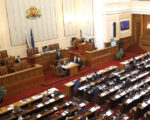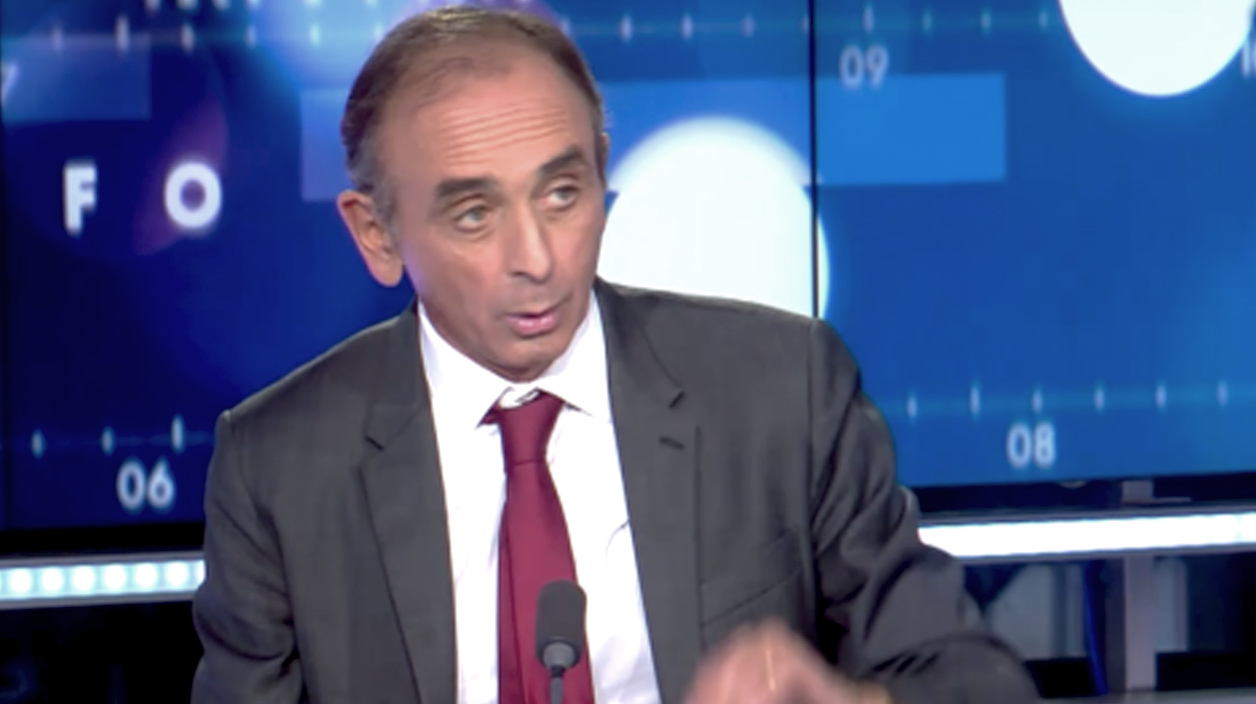>> Kyrgyzstan: Withdraw Draconian Homophobic Bill
[spacer]
Cette république d’Asie centrale, et ancienne « province soviétique » qui aura pourtant pris son indépendance en 1991, aurait donc l’intention d’instaurer une législation inspirée du même modèle Russe, pour interdire toute « propagande » d’une sexualité définie comme « non traditionnelle ». Débattu publiquement depuis le 26 mars dernier, ce projet prévoit de modifier le code criminel, le code de la responsabilité administrative, la loi d’assemblée pacifique, et médias de masses.
Communication, médias… restriction de la liberté d’expression. Interdiction de rassemblements pour les personnes, associations et autres sympathisants LGBT, également considérés comme « criminels ambigus« . Toute diffusion d’informations et tentative d’actions « plutôt positives » en faveur de l’homosexualité sera condamnable. Et ils ont anticipé sur toute une gamme de sanctions pénales et administratives pouvant aller jusqu’à 6 mois d’emprisonnement, et des amendes de 2000 à 5 000 soms. Soit environ 26 à 67 euros. Et si c’était le cas devant mineur, les peines seraient pratiquement doublées.
« Ce projet draconien est ouvertement discriminatoire et priverait tous les citoyens du Kirghizstan de leurs droits fondamentaux », a déclaré Hugh Williamson, directeur de la division européenne et d’Asie centrale pour Human Rights Watch. « Les auteurs de ce texte de loi homophobe devraient immédiatement le retirer, et le gouvernement et les partis politiques devraient se prononcer contre, en stipulant clairement qu’elle n’a pas sa place au Kirghizistan. »
Les ONG espèrent que l’Assemblée parlementaire du Conseil de l’Europe qui devrait statuer le 8 avril prochain sur une demande du Kirghizistan d’un « partenariat » pour la « démocratie » reconsidère la question, et dénonce avec vigueur cette dérive, tout à fait incompatible avec leur politique.
Le Kirghizistan est en effet lié par un Pacte international relatif aux droits civils et politiques de façon à garantir à tous les citoyens les mêmes protections contre la discrimination, le droit à la liberté de réunion, d’association et d’expression.
Mais les LGBT n’en restent pas moins victimes d’abus, de violences physiques, sexuelles et psychologiques.
Dans un rapport publié tout récemment « Ils disent que nous l’avons mérité… », Human Rights Watch dévoile jusqu’aux méthodes de harcèlement, et la façon dont les gays et bisexuels sont soumis à des détentions arbitraires, des extorsions sous la menace de voir exposer leur orientation sexuelle aux amis et à la famille, toujours homophobes. Et, dans les semaines qui ont d’ailleurs suivi la parution de ce fameux rapport incriminant la police, un des militants LGBT impliqué dans sa publication a bien évidemment reçu des menaces de mort.
Pour Hugh Williamson : « Le gouvernement du Kirghizistan devrait protéger ses citoyens LGBT, et non pas limiter leur droit à pouvoir s’exprimer sur leur vie et les abus qu’ils subissent. Cette tentative d’exclusion des homosexuels, pour les rendre moins humains, en leur attribuant la mention du « non traditionnelle » est cynique et dangereuse. »
Terrence Katchadourian
@stop_homophobie
>> The sponsors of a discriminatory and stigmatizing draft bill to curtail lesbian, gay, bisexual, and transgender (LGBT) rights should withdraw it from Kyrgyzstan’s parliament, Human Rights Watch said today.
Such a law would infringe on freedom of expression, association, and assembly rights, and discriminate against Kyrgyzstan’s lesbian, gay, bisexual, and transgender (LGBT) community.
On March 26, 2014, Kyrgyzstan’s national parliament (Zhogorku Kenesh) published a draft bill that imposes criminal sanctions for spreading information about homosexuality or LGBT issues. The bill was published online for public discussion, but has not been officially registered for consideration. The provisions in the bill would violate Kyrgyzstan’s constitution as well as international human rights law on nondiscrimination, freedom of expression, association, and assembly, Human Rights Watch said.
“This draconian bill is blatantly discriminatory against LGBT people and would deny citizens across Kyrgyzstan their fundamental rights,” said Hugh Williamson, Europe and Central Asia director at Human Rights Watch. “The sponsors of this homophobic bill should withdraw it immediately, and the government and political parties should speak out against such legislation, making clear it has no place in Kyrgyzstan.”
The Parliamentary Assembly of the Council of Europe, which is due to consider Kyrgyzstan’s application for special “Partnership for Democracy” status with it on April 8, should send a strong message that the bill is unacceptable, and make clear that partnership status is wholly incompatible with legislation of this kind.
The bill would amend the Criminal Code, the Code of Administrative Responsibility, the Law on Peaceful Assembly, and the Law on Mass Media, and would introduce a range of criminal and administrative sanctions on those who speak or act in a way that creates “a positive attitude toward nontraditional sexual orientation.”
In their explanatory note to the draft bill, the sponsors define “non-traditional sexual relations” as “sodomy, lesbianism and other forms of non-traditional sexual behavior.” They justify the amendments as necessary “to safeguard and protect the traditional family, human, moral, and historical values of Kyrgyz society.”
Under the proposed amendments to the Criminal Code, people who are found responsible for “creating a positive attitude toward non-traditional sexual relations, using the media or information and telecommunications networks,” would face up to six months in prison and a fine of from 2,000 to 5,000 som (US$36 to $91).
If the person is found to “create a positive attitude toward non-traditional sexual relations” among minors, or is a repeat offender, the prison term could be as long as a year and the fine would be 3,000 to 6,000 som ($55 to $110). Fines also could be imposed under the administrative code for similar activities that do not amount to criminal acts under the proposed amendments.
The bill defines “creating a positive attitude toward non-traditional sexual relations” as “disseminating information that would create non-traditional sexual attitudes in an individual or distorted notions of social equivalence between traditional and non-traditional sexual relations, or that would impose information about non-traditional sexual relations to evoke interest in such relations…”
Last year, Russia adopted similar restrictive legislation against “propaganda of non-traditional sexual relations” to children. The adoption of this legislation coincided with the escalation of violent attacks on LGBT people in Russia. The Russian law has drawn significant international criticism, including by the Organization for Security and Co-operation in Europe’s (OSCE) representative on freedom of the media, the Council of Europe Venice Commission, the Parliamentary Assembly of the Council of Europe (PACE), the United Nations Office of the High Commissioner for Human Rights, the UN Committee on the Rights of the Child, and the European Union, all of which have expressed profound concern about such discriminatory legislation.
The scope of the Kyrgyz “propaganda law” is even more extensive, seeking to ban outright any information in the public sphere that paints homosexuality in a positive, or even neutral, light.
The sponsors state in their explanatory note that the draft legislation seeks to:
“Limit dissemination of information in the media, information, photo, video, and written materials, including materials that have an open or hidden call toward non-traditional sexual relations;”
“Restrict organizing and participating in peaceful assemblies that aim to make publicly available any information regarding any forms of non-traditional sexual relations;” and
“Define the criminal and administrative liability of legal entities and individuals for disseminating information containing hidden or open propaganda about non-traditional forms of sexual relations, including toward minors.”
Kyrgyzstan is bound by the International Covenant on Civil and Political Rights to guarantee the right not to be discriminated against, and to freedom of assembly, association, and expression.
On March 27, the UN Human Rights Committee, which oversees states’ compliance with the covenant, expressed concern about violence by government and nongovernment actors against LGBT people in Kyrgyzstan, and called on the Kyrgyz government to adequately address such abuses by investigating and holding those responsible accountable.
The environment for LGBT people in Kyrgyzstan is hostile, and LGBT people are frequently targeted for police extortion, harassment, and physical abuse. In a recently released report, “They Told Us We Deserved This,” Human Rights Watch documented how gay and bisexual men have been subjected to a range of abuses at the hands of police in Kyrgyzstan. The abuse includes physical, sexual, and psychological violence, arbitrary detention, and extortion under the threat of violence or of exposing victims’ sexual orientation to friends and family. Lesbians, bisexual women, and transgender men experience violence from their families and others trying to “cure” them of homosexuality.
In the weeks following the publication of the report, an LGBT activist who was involved with the report release received various threats from individuals on social media, including a death threat. The nationalist political group Kalys has held two protests against “propaganda of homosexuality” and a number of politicians have spoken out negatively about LGBT people in the media.
“The government of Kyrgyzstan should protect its LGBT citizens from violence and discrimination, not limit their right to speak about their lives and the violations they experience,” Williamson said. “Attempting to exclude LGBT people as ‘nontraditional’ is cynical and dangerous, and tries to make them less than human.”

















